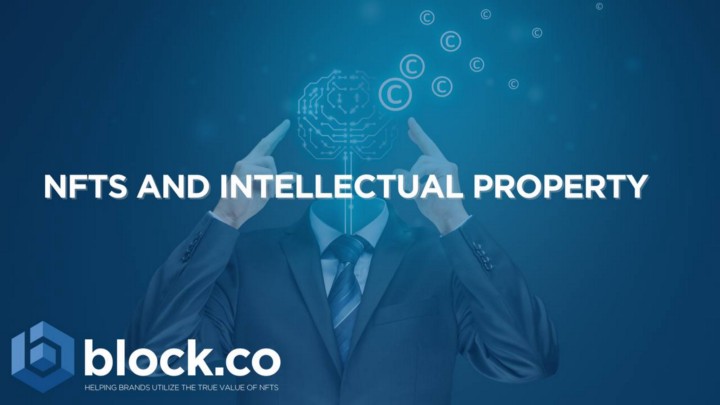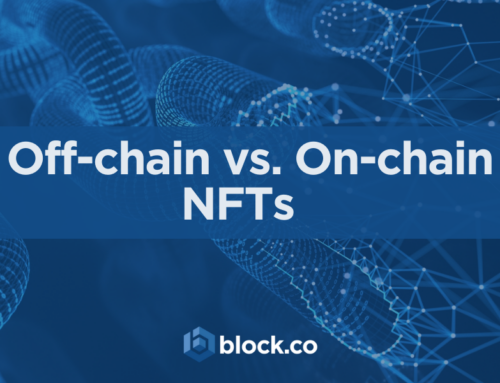Blockchain Use in Intellectual Property

Patents, trademarks, and industrial designs, along with copyrights, are all types of intellectual property protections that help creators of written stories, inventions, artistic works, or symbols to stop people from stealing or copying their pieces of work. In this article, we will examine how blockchain is used in Intellectual Property rights.
Broadly speaking, Intellectual Properties (IP) are “unique, value-adding creations of the human intellect that result from human ingenuity, creativity, and inventiveness.” (Kalanje, 2006).
By observing trends, we can identify a steady increase in the number of Intellectual Property applications worldwide. According to official statisticsby the World Intellectual Property Organization (WIPO), applications worldwide of patents grew 72.3% over ten years, increasing to 3,326,300 from 2008 to 2018. Trademarks grew an astonishing 160% over the same period, to a record 14,321,800 number of applications, while industrial design applications were 1,312,600, growing by 61%. Every country has a specific authority where to apply for proper protection. However, it is becoming increasingly common that these jurisdictions will utilize blockchain technology to provide a smoother, faster, and cheaper application process and a system that ensures an incorruptible and secure timestamping through the hashing function.
How does it work?
Blockchain ‘trust’ is guaranteed by hashing algorithms, instead of third parties. Since, by default, hashes are unique and cannot be misinterpreted, nor two same hashes can be produced, it’s just easy to identify and match that hash with a unique document creating an unambiguous proof of existence. This way, a permanent ledger of data is created to prove the existence and the lifecycle of a specific IP right, enhancing its protection at a registry or in court.
Blockchain use in Intellectual Property potential is enormous, aiding in the evidence of creatorship and provenance authentication to registering and clearing IP rights; digital rights management; establishing and enforcing IP agreements, licenses, or exclusive distribution networks through smart contracts; and transmitting payments in real-time to IP owners.
In the case of patents, the real benefit of using blockchain lies in the immutable ledger of records with a tamper-proof code providing strong evidence of facts about an invention life-cycle. However, unlike copyrights, any new creation will still have to be patented with the proper authority or anyone else will be free to copy it or claim it without incurring any legal trouble.
“Deploying blockchain technology within the patent system could reduce inefficiencies in recording and efficiently agreeing the time of registrations, perhaps across several national patent systems” (Boucher et al., 2017).
In the case of Copyrights, these do not need to be registered with a government authority, therefore blockchain can have a major role in ensuring that evidence can be provided of authorship, use, and status of a specific production. Particularly, in case of disputes in court, blockchain provides strong evidence to prove an inventor’s right on intellectual property, and protect legal rights on authorship. So, when including writing and literary or artistic works, creators get some type of protection automatically via blockchain, whereas with others, they have to apply for it.
Trademarks, on the other hand, are the IP protection type that can most benefit from blockchain because it can easily, quickly, and very cheaply prove how similar are two marks to each other and who can claim to have used it first, providing immutable and timestamped proof of dates and usage. By using blockchain, many of the questions which can arise about exactly when, where, and how the trademark was used, can be instantly answered.
Cyprus-based company Block.co provides services in a range of different industries, and timestamping trademarks on the blockchain is one of them. The company is a spin-off of the University of Nicosia, one of the biggest blockchain contributors globally, and its mission is to eliminate document fraud in all sectors, by transforming the way institutions manage digital records.
International business and technology lawyer Christiana Aristidou makes large use of Block.co’s services and especially in copyrights and trademarks for several of her clients.
“We consider the Block.co solution indispensable towards our objective of constantly enhancing the provision of our legal services through innovative technological solutions. The protection of copyright and other relevant intellectual property rights now involves a simple, fast, automated, and cost-efficient, blockchain-backed certificate issuance. Using blockchain, thereby ensuring a transparent, immutable, secure, time-stamped, and tamper-proof recording of data, the Block.co solution offers a revolutionary and innovative means to protect our clients’ intellectual property, instead of other time-consuming and costly traditional processes.” she recently stated.
“Specifically, our clients’ data and evidence supporting their authorship, invention, or creation of any property that warrants copyright protection, may now be recorded in a digital document, which is then verified in a trusted and time-stamped manner on a blockchain. Our clients retain ownership and control of their data, having been granted easy access to a self-verifiable blockchain-secured certificate of such data.”
Smart Contracts
Smart contracts could also represent an important asset of blockchain technology because they can be used in intellectual property to establish and enforce agreements such as licenses and allow the transmission of payments in real-time to IP owners. Indeed, they allow automatic payments for transactions between users and rights holders with no middle man, thereby cutting out intermediate fees, longer procedures, and bureaucratic hurdles.
Blockchain in IP around the world
In Europe, various governmental agencies and IP registries such as the European Union Intellectual Property Office (EUIPO) are actively involved in researching and promoting blockchain capabilities within the industry.
In particular, they believe blockchain can transform IP rights by highlighting, in one of their advanced research forums, that:
- IP and blockchain are interrelated
- Blockchain is transformative
- IP protection will drive innovation in the ecosystem
- Blockchain technology will transform IP protection and enforcement
- Blockchain technology provides opportunities for both pirates and law enforcement
In India, the IPO (Indian Patent Office) is working on using blockchain and other innovative technologies like AI and IOT to enable smoother patent processes. A Blockchain-AI-based ecosystem is on the table to manage IP protection in India, intending to produce a much more efficient, straightforward, and faster procedure. IPO recently announced a tender called, “Expression of Interest for Making use of Artificial Intelligence, Blockchain, IoT and other latest technologies in the Patent Processing system of IPO”, reinforcing their will to proceed along this line of work and stay up to date with the technological innovation that blockchain, AI and IoT can bring to the benefit of IP rights. A legal framework for a Blockchain-based IP registry to protect and commercialize smart ideas is one of the main and earliest initiatives the IPO is taking for the Indian IP industry.
In the United States, we find a clear example of how blockchain is used to protect American businesses from IPR theft by testing imports. Since blockchain has proven to be beneficial to streamline communication between multiple parties securely, the U.S. Customs and Border Protection(CBP), with the funding of the Department of Homeland Security’s Science & Technology Directorate, recently completed a proof-of-concept (PoC) of a blockchain platform with that specific aim. Personal data and trade secrets would be kept safe at all times using encrypted keys, with the blockchain acting as an immutable ledger to record trade transactions.
In Southeast Asia, Thailand is leading the way in developing blockchain technology for IP protection. Various organizations and government offices have invested in projects aimed at implementing the tech to make IPR processes more efficient and faster. The Ministry of Commerce has recently launched a feasibility study to explore the use of blockchain for IP registration in the country, while the Thai Trade Policy and Strategy Office (TPSO), in collaboration with the British Embassy, were designated to analyze the study and translate it into action plans for future developments.
Conclusion — Blockchain limits and benefits in IP
As with every new technology, especially the most disruptive ones, setbacks can be both from a technical and a systemic perspective. Enormous processing power and scalability are still the main issues from a technical point, whereas a system that could connect registries across the world through a single distributed ledger represents the main challenge, not only for IP-related industries. Thankfully, Block.co’s solution already uses the Bitcoin blockchain and its network effect for this purpose, envisioning truly decentralized and secure storage for IP rights, that will outlive any issuing institution itself.
An international standardized system and platform that could facilitate global communication and successful management of IP rights via blockchain is an ambition that is reflected in healthcare, law, and many other industries. On the other hand, blockchain based IP rights enforcement is already a huge achievement, especially for those small artists who could not afford teams of lawyers to defend them in disputes to prove records of their authorship.
If your brand is ready to take the step into web 3.0 and NFT marketing, to optimize engagement with your audience in innovative ways, then click the button below to get your Free Trial, a limited number of Free NFTs, and a Free Consultation call from our team!
For more info, contact Block.co directly or email at enquiries@block.co.
Tel +357 70007828
Get the latest from Block.co, like and follow us on social media:







